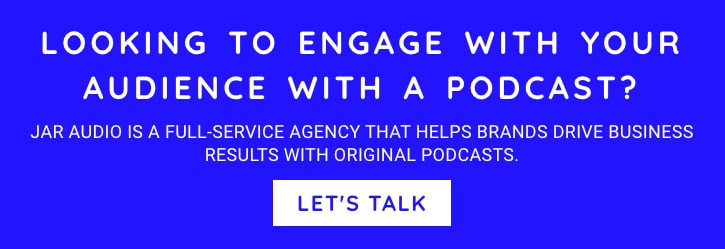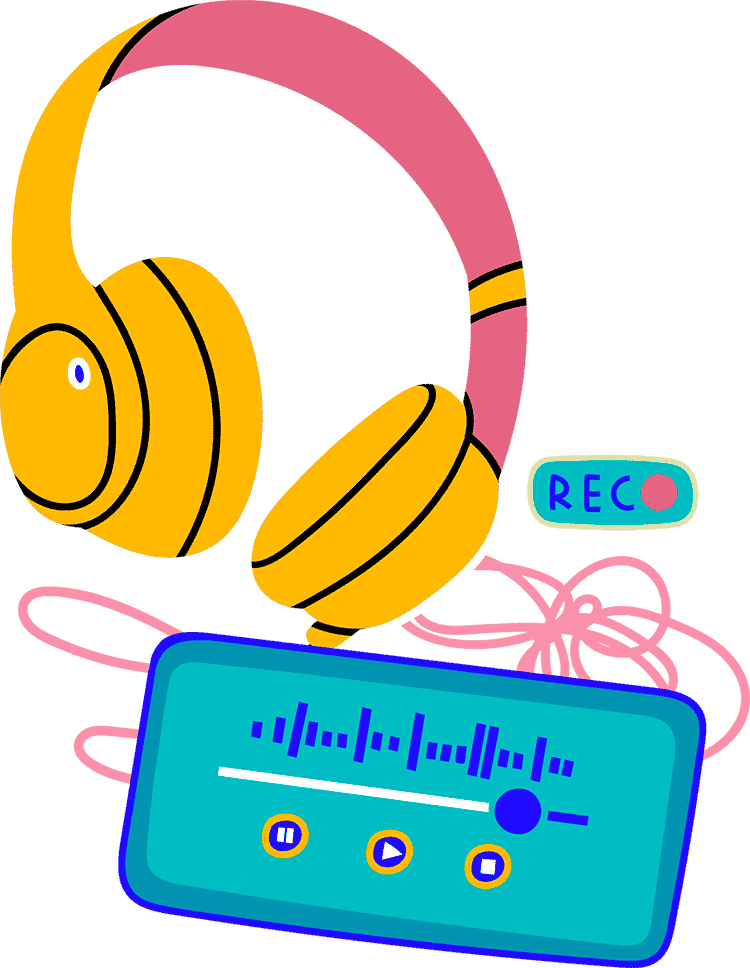Tracking these key metrics will help you find podcast success.
Anyone in the branded podcast game today should have a solid understanding of podcast analytics—especially if they hope to continue growing their audience over time.
By consistently tracking the right metrics, podcasters can identify what’s working as well as the areas where they need to improve.
Historically, the podcast world hasn’t had many effective tools to help creators track analytics closely. However, the tech is evolving at a rapid pace, and thankfully there are now platforms emerging that provide podcasters with the key metrics to achieve podcast success and grow their audience.
Not only can tracking podcast analytics help you uncover new insights about how your content’s resonating with listeners, but it can also shine a light on your podcast’s ROI and how it’s directly contributing to the growth of your brand. This will ultimately help continuously level-up your podcast game while understanding the impact your show is having on your audience.
Of course, there’s an endless number of metrics podcasters can track to improve their show, but there are a handful that are essential for brands to know about. Here are five key podcast metrics brands should be looking at today:

Subscriptions
By tracking the number of people who have subscribed to your show, you’ll be able to glean insights about how many of your listeners are dedicated followers versus just passing through for a quick listen.
Since subscribing to a show means you opt in to receive a notification each time a new episode drops, you can rest assured that this metric gives you a clear sense of audience sentiment, loyalty and listener engagement.

Downloads and listens
Unlike subscriptions, tracking downloads tells you how many people have downloaded a single episode to their device. This is helpful because it will give you a sense of which episodes are resonating most with your audience, and which are falling flat.
Similar to downloads but not exactly the same, listens refers to the number of people who have listened to a certain episode.
This number will likely be higher than the number of downloads you see on an episode since it accounts for people who have just browsed through your content to check it out, but haven’t necessarily committed to downloading it.

Consumption rate
About a third of podcasts lose listeners within the first five minutes of the episode, according to NPR. Tracking each episode’s consumption rate can help you discover the most engaging format you can use to hook listeners from the beginning, or it can reveal any segments you need to cut from the show.
Web and social analytics
When it comes to understanding podcast analytics, tracking promotional sources like your website and social media accounts is just as important as the podcast data itself.
Since your website, newsletter and social media postings will likely be the main channels you use to attract new listeners, it’s important to gain a solid understanding of how your content is landing with other users. Be sure to track metrics like pageviews, traffic, engagement rate and followers to gauge your progress.

How to report on podcast data
Now that you know a few of the key metrics you should be tracking to take your branded podcast to the next level, what’s the next step in the process? Reporting.
You’ll want to find an effective way to report on performance data that suits your team or leaders within your organization.
You can decide to report on your podcast performance either weekly, bi-weekly, monthly, quarterly, and even yearly. Reporting is key to track your podcast success over a long period of time and measure whether or not your show is hitting KPIs.
Some examples of key points to add to your report could include:
-
Charts and graphs of metrics overtime
-
Any key trends you can identify
-
Top performing episodes / posts
-
Key learnings
-
Next steps / actionable takeaways

How your data should influence podcast decisions
Ultimately, the purpose behind tracking podcast analytics is to help you determine the best course of action moving forward. While going with your gut is great, it’s equally important to make data-driven decisions that will increase your likelihood of finding podcast success for your brand.
Happy tracking!
Author Information:
Mackenzie Patterson
Mackenzie Patterson is the Senior Producer & Content Strategist at award-winning podcast production agency, Quill Inc. and podcast hosting and analytics platform, CoHost. You can find her writing about all things audio, content marketing, and growth.
Subscribe to our newsletter!
Join 1500+ readers and get The Own Your Audience Newsletter right to your inbox.

